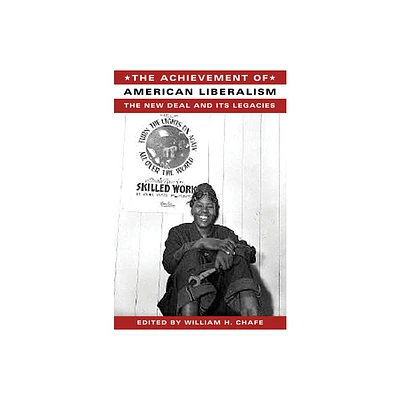Home
John Dewey and the High Tide of American Liberalism
Loading Inventory...
Barnes and Noble
John Dewey and the High Tide of American Liberalism
Current price: $40.00


Barnes and Noble
John Dewey and the High Tide of American Liberalism
Current price: $40.00
Loading Inventory...
Size: OS
*Product Information may vary - to confirm product availability, pricing, and additional information please contact Barnes and Noble
“[A] brilliant intellectual biography. . . . Ryan submits incisive, compressed accounts of Dewey’s important works and, with considerable flair, describes the major political debates into which Dewey entered. Ryan has an expert historian’s grasp on the major events of the century and weaves them skillfully through Dewey’s life story.” —Mark Edmundson,
Washington Post Book World
When John Dewey died in 1952, he was memorialized as America's most famous philosopher, revered by liberal educators and deplored by conservatives, but universally acknowledged as his country's intellectual voice. Many things conspired to give Dewey an extraordinary intellectual eminence: He was immensely long-lived and immensely prolific; he died in his ninety-third year, and his intellectual productivity hardly slackened until his eighties. Professor Alan Ryan offers new insights into Dewey's many achievements, his character, and the era in which his scholarship had a remarkable impact. He investigates the question of what an American audience wanted from a public philosopher - from an intellectual figure whose credentials came from his academic standing as a philosopher, but whose audience was much wider than an academic one. Ran argues that Dewey's "religious" outlook illuminates his politics much more vividly than it does the politics of religion as ordinarily conceived. He examines how Dewey fit into the American radical tradition, how he was and was not like his transatlantic contemporaries, why he could for so long practice a form of philosophical inquiry that became unfashionable in England after 1914 at the latest.
Washington Post Book World
When John Dewey died in 1952, he was memorialized as America's most famous philosopher, revered by liberal educators and deplored by conservatives, but universally acknowledged as his country's intellectual voice. Many things conspired to give Dewey an extraordinary intellectual eminence: He was immensely long-lived and immensely prolific; he died in his ninety-third year, and his intellectual productivity hardly slackened until his eighties. Professor Alan Ryan offers new insights into Dewey's many achievements, his character, and the era in which his scholarship had a remarkable impact. He investigates the question of what an American audience wanted from a public philosopher - from an intellectual figure whose credentials came from his academic standing as a philosopher, but whose audience was much wider than an academic one. Ran argues that Dewey's "religious" outlook illuminates his politics much more vividly than it does the politics of religion as ordinarily conceived. He examines how Dewey fit into the American radical tradition, how he was and was not like his transatlantic contemporaries, why he could for so long practice a form of philosophical inquiry that became unfashionable in England after 1914 at the latest.


















